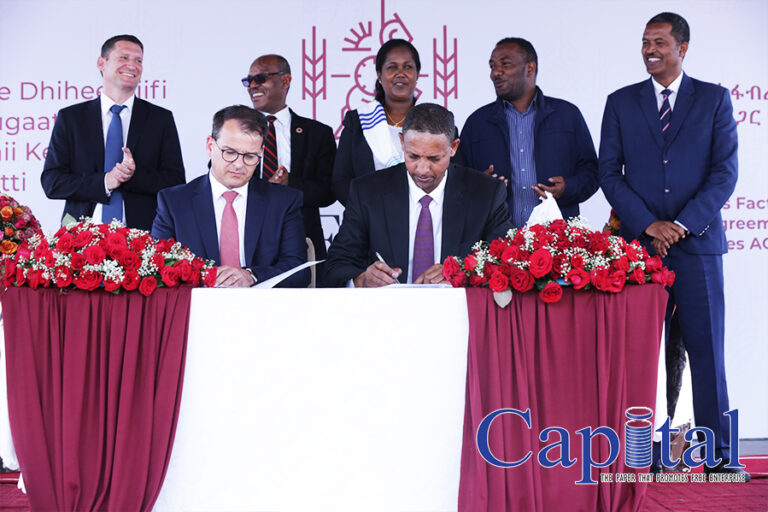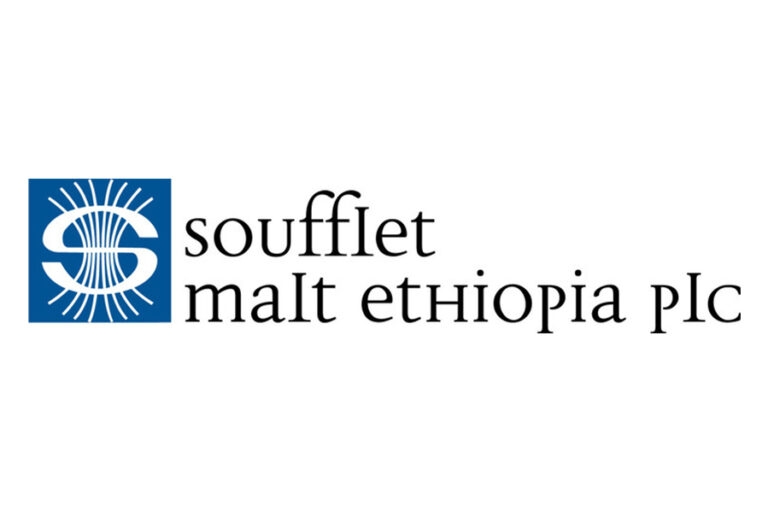EthSwitch is under the final stage to commence new projects to expand real time retail payment project under three digital platforms.
The company that was formed by financial firms in the country about a decade ago and which introduced its national switch service in 2015 said that it will announce the commencement of core instant payment switch, payment gateway, and shared wallet and digital channels projects that will be operational in different three lots and timeframe.
Abel Tadele, Director of Program Management Office at EthSwitch, told Capital that the initial project that will go live in the near future is a payment gateway and will be followed by a core instant payment switch.
He said that the company has been undertaking several works to boost its capacity to the level that developed or developing countries are using in the modern payment system.
With regards to the process, the real time retail payment system is in the process to be launched in three lots.
At the initial stage EthSwitch has issued expression of interest that attracted about 54 global companies and followed by request for proposal (RFP) responded by 31 companies.
“From the evaluation on the RFP we have shortlisted 18 international companies including the global giants in the ecosystem to compete,” Abel explained.
For the first lot and second lot similarly six companies and four companies for third lot have provided their responses to execute the projects.
“Our evaluation committee has now finalized the technical and financial evaluation and it is currently on the stage of negotiation and contracting,” he added.
For the first lot, core instant payment switch, companies like HPS and BPC AG have reached as finalist, while in the second lot that is payment gateway, it attracted well-known companies in the digital payment ecosystem like HPS, FSS and BPC.
Similarly, the finalists for the third lot are Panamax, BPC, HPS and FSS, “we will disclose the details when the awarding process closes,” Abel added.
Currently, in relation to the reform at the National Bank of Ethiopia (NBE), financial industry regulatory body, on the payment system interoperability has become crucial since non bank institutions are allowed to involve on the system, “interoperable is required for nontraditional banks, who may use different source of channels and technologies like mobile payment, web or app besides the traditional bank account and card systems.”
Abel said that besides that interoperability is vital for payment system for ecommerce that demands payment on online environment.
“In this regard the payment gateway receives priority and will be applied at the first stage of the coming project implementation,” he explained.
The scheme will benefit different stakeholders like participants to access the online payment platform for payment.
The payment gateway would have also directory service in different models that benefits users to conduct payment by alias.
“The payment gateway will be introduced in the coming few months and will expand through time,” the Program Management Office Director said.
It would be a breakthrough for the digital payment industry that benefits not only traditional banking system but others of new entrants on the payment system.
The first lot, core instant payment switch that was put on the second stage as a priority but is implemented in parallel with the second lot will expand to mobile based payments.
Core instant payment switch shall ease the peer to peer payment system between banks that is currently piloted under the existing system.
Abel said that it is also designed to conduct swift or instant payments clearing from account to account immediately between customers.
“It may initiate from different channels like mobile or internet that also supports services like bulk disbursement. For example Ministry of Finance can conduct pension payments or payment for beneficiaries under productive safety net program from a single source to different accounts and that may use different financial firms and it will help for wage disbursement in the future,” he explained.
It has also different schemes like API (application programming interface) management layer, shared fraud management, disputed management module and other functional attributes.
“The two lots that have interlinks would allow to provide services on ultra low cost and encourage for the growth of digital payment usage,” Abel explained the benefit of the coming new technologies by adding that the shared wallet and digital channels platform that is included in the third lot will provide an omni channel service that would ease the unnecessary cost of financial firms spending to install this technology.
“Since it is a shared platform EthSwitch will install, it will be affordable for financial firms to avail with reasonable rate,” he added.
“So far as a priority the market is demanding the payment gateway due to that it will be expected to be seen in the coming six months under a first phase of implementation and other two phases of the payment gateway will be emplaced in another six months times respectably,” Fikru Woldetensay, Director for Marketing and Innovation of EthSwitch, told Capital.
“The first lot will be also running in similar period, while the third lot will be implemented in the near future as next move,” he added.
Fikru said that the major target of EthSwitch is to provide modern schemes on the digital payment integration for financial industry, “we want to investment on financial inclusion technologies to easy the burden of financial firms that is why we are introducing these three new projects.”
“Access to finance in the country is low compared with peers the investment is also very high for expansion. For instance deploying a single ATM it may cost thousands of dollars and hundreds of dollar for POS but the integration that Eth Switch done and the coming of these new platforms will minimize the financial firms’ investment and share their burdens with insignificant service charge,” Marketing and Innovation Director explained.
He said that the new scheme will contribute for financial firms to satisfy customer and build confidence.
According to the two leaders, the project in the three lots may cost up to eight million dollar at pre implementation period, but it is early to mention given amount since it is on negotiation stages.
For over five years EthSwitch has enabled to manage all ATMs under interoperable, and since last year using POS terminals operated by all banks.
Ethswitch, established in 2011, is a share company fully owned by all banks in Ethiopia. It is established mainly to provide simple, affordable, secured, and efficient e-payment infrastructure services to retail payment service providers, and through them, to end users in Ethiopia; by deploying technology.
Ethswitch is one of the two national switches in Africa that Yilebes Addis, CEO of EthSwitch recently says it has enable to cut unnecessary charges that may be occurred if the country uses foreign payment systems for its domestic payment solution.
The CEO explained that over 26.5 million numbers of transactions that have 28 percent increment compared with the preceding year have registered, while ATM cash withdrawal takes the 80 percent.
“POS interoperable has registered significant performance despite being new. In terms of profit it achieved 115 percent compared with the projection,” he added.
EthSwitch, which is expected to provide service for payment system operators and payment instrument issuers when they are getting a green light from N4BE, has a subscribed capital of 900 million birr.
So far information indicated that excluding the traditional banks about 12 system operators and four issuers are on the pipeline to be operational as per the NBE directive that was issued recently under the way to financial inclusion and digital payment strategy.
EthSwitch finalizes to start new expansion projects
Ethiopia receives digital economy boost from TeleBirr
Last month Ethio Telecom, the most profitable public enterprises, had launcheda mobile money service under the brand name ‘telebirr’. Within few weeks Ethio telecom managed to attract over four million customers who have registered on its telebirr platform and it has been reported that in this very few weeks millions of birr worth of transaction have already been go through the platform.
Experts in the sector said that the dormant digital currency transaction that is now a major transaction platform in many countries mainly in developing economy is now a good alternative for Ethiopia to boost the financial industry and also for e-commerce,which has already got significant attention on the ‘Digital Ethiopia 2025’ Strategy of the government.
The government has also clearly stated that it aims to boost the digital economy, job, and other IT based technologies and businesses as one of the major players for socioeconomic changes.
Besides creating enabling environment like policy, strategy, and laws to attain the targeted achievement in the IT industry, the government has also opened up the telecom industry for more players.
Experts in the IT industry and familiar with e-commerce said that the coming of telebirr and opening up of the telecom sector would be a big opportunity in terms of ease of doing business and transaction besides expanding online services like e-learning.
Recently, Brook Adhana, senior staff at Ethio Telecom, that the telecom giant is working with a company to sell its share.
He said the telebirr birr initiative is aligned with the coming e-commerce company that will use the existed US company black purpose e-commerce platform to buy and sell products.
Besides that Brook said that the company’s share will be also sold via telebirr. It is the first ever type of share sales on the telecom platform.
One of the experts is Daniel Bekele, founder and CEO of Ashewa Technology Solution. Heeagerly looked forward for the development in the telecom industry mainly on the payment platform to boost his dream that his company is engaged in.
Ashewa is an online platform that facilitates the e-commerce and e-learning for anyone who lives in Ethiopia or other places.
“Definitely the new initiative of ethio telecom will accelerate the digital economy since it would make it easy to buy and sell goods and services besides creating a cashless society,” he shared his expectation.
Daniel said that the technology sector particularly of the digital sub sector has massive impact on the current world on the economy and jobs that is not tapped by Ethiopians properly, “there are people saying we are not ready for practicing the digital technology on the day-to-day life, but it is not correct at least we have to start at some point and expand it in the future.”
“Wewill start the digital scheme for e-commerce and e-learning for those who are accessible and it will be a lesson for others to be encouraged and engaged,” he added.
“Currently, there is no opportunity for potential users and as per our evaluation at least there are 6 million active internet users that will be very high when including the diaspora,” he said.
Experts on the sector said that the latest government initiative to boost the digital economy is a conducive environment for the digital economy. They said people are using smartphone that means they should have opportunities to access different technologies on their devices. “To achieve that modern education, market and payment system are supposed to be developed,” experts explained.
Latest information secured from Ministry of Finance indicated that smartphones as a percent of total connections stand at 44 percent in Ethiopia which is in line with Sub-Saharan Africa average of 44 percent.
Ashewa’s CEO said that people shall generate revenue and get service by using besides using internet for social media or entertainment and information.
Currently, there are online platforms or social media platforms used to promote various sales of services and goods online but it is not growing as such like the experience of others including peers.
“You may promote a brand, goods or services online but it is crucial to be aligned with modern and alternative payment system to run it properly,” a telegram platform cosmetics seller said.
The alternative payment schemes that are observed in other countries shall accelerate the e-commerce or other services, according to Daniel, who has experience on the online trading scheme of Jumia.
“I have served at Jumia in Nairobi branch for very few periods but I understand just how much the modern payment system has eased the trading via the prominent modern platform that originally formed in Nigeria. Likewise, telebirr will do the same,” Daniel elaborates.
Daniel said besides different payment alternatives,he observed that the major share of Kenyans are using the mobile money, M Pesa, which is a globally popular e-payment scheme of Safaricom, to buy products through Jumia platform from all over traders in the world.
Experts said that the coming of telebirris expected to contribute similar achievement in the digital business in the country.
“The coming of millions of users within few weeks on telebirr is a testament to the impact. Under our reestablishment that will be launched on the third week of July we would have different payment integrations on our online business. Besides the mobile banking or internet banking for sure we include telebirr as a major alternative,” founder of Ashewa that is focused on the e-learning and e-commerce and now rebranding and reestablish its business on wider ranges due to huge investment and massive share sales explained.
Ethio Telecom had disclosed that it has linked with Commercial Bank of Ethiopia and Bank of Abyssiniato power the mobile wallet, while others are also expected to be included on the new scheme.
Kegna beverages strikes deal with Krones
Kegna Beverage S.C, one of the companies that followed the economic revolution in Oromia Regional State in 2017, has signed a deal with a German company for the supply and installation of brewery machineries.
On an event held on Saturday, June 19, 2021 in Ginchi Town in west Oromia region Kegna signed the deal with the German company, Krones AG. Dirk Hamleaning a representative of Krones AG and Tolosa Gadefa, chairman of the board of directors of Kegna Beverage were present in the presence of delegates of the company and board members of Kegna Brewery SC.
“The agreement comes to life after a long and strong negotiation with deep analysis of every single step and document,” said Tolosa.
According to the company, the process of the bid for the procurement and installation of machineries took about 10 months including the bid document preparation up to evaluation of the bid.
As stated on the signing ceremony, Krones AG is a reputed German company and leader in the sector.
Kegna beverage is building a factory in Ginchi town which is some 83km west of Addis Ababa at a cost of 5.5 billion birr.
The factory is currently under construction on a 101 hectares plot of land to brew beer and other beverages like juice and bottled water. For the success of this construction, local contractor called Welabu Construction have been hired to take over the civil work of the factory and have started their operation on the project.
At full capacity, the factory will produce three million hectoliters of beer per annum. The factory is also expected to create job opportunities for 3,500 people.
Previously, Kegna beverages has awarded other German consulting company called Brewtech GmbH through international competitive bid procurement to oversee the feasibility study, development, design and construction of the plant, as well as the installation of the machinery.
The company has around 5,000 shareholders including farmers. Kegna Beverage S.C, one of the companies that followed the economic revolution in Oromia Regional State has a total authorized capital of 3 billion. Currently the company is working to secure financing for the project.
The Oromia economic revolution is the fruit of Oromia scholars coming together in order to alleviate the economic problems of the region and the country after studying and implementing strategic sectors of the region’s resources.
Other projects under the economic revolution include Oda Integrated Transport, Kegna Agricultural Machinery and Welabu Construction. Kegna has around 5,000 shareholders including farmers, 1.5 billion Br in subscribed capital, of which 700 million Br is paid-up.
Malteries Soufflet commences malt production
The leading French based agri-food group, Malteries Soufflet has begun its malt production in its new plant in Ethiopia with a local supply chain for malt barley.
After two years of construction of its factory which started on March 2019, the company completed its construction towards the end of April 2021. As stated by the group, the factory has started its production to the local market after its first test at the beginning of May and is now in continuous production.
Malteries Soufflet, one of the top millers in Europe in the wheat sector and an expert in custom ingredient blends has planned to cover all local demand within three years using local input for the growing market. “The malt production launched at its new plant with a local supply chain for malting barley, as it is the largest producer of certified malting barley seed and the largest collector of barley in Ethiopia,” said the company.
“This ambitious plan is part of Malteries Soufflet’s strategy to develop operations outside Europe, which already include Brazil, Argentina and India,” expressed the company.
With its newly constructed factory, Soufflet has given 100 people employment opportunities. “Forty-five people work on the development of the barley sector and thirty-five manage the operation of the plant and silos; 20 are in administrative functions and in addition creates more than 200 indirect jobs, especially in rural areas for barley quality control and handling,” the firm highlighted.
For the 2020 – 2021 collection, the Group has collected 70% local barley and aims to quickly collect 100% of its needs from the local farmers.
Soufflet is a French agri-food group operates in the barley, wheat, rice and legume sectors, and supports winegrowers. It is private collector of cereals in Europe, and trades on international markets through its subsidiary, Soufflet Négoce. In the barley sector, it is a major player on the global malt market in Europe, Asia, South America and Africa.
Malteries Soufflet runs 28 malt houses in Europe, Latin America and Asia, with an annual malt production capacity of 2,300,000 tonnes, and is also active in Ethiopia. It also designs and manufactures enzymes and raising agents and is a major player in the baked goods sector in France and Portugal. It also operates in the fast food industry.
As part of its “Sowing Good Sense” development programme, the Soufflet Group invests in research and innovation in order to augment agricultural resources, according to the company.






